QuestionHi there. I have an 8 year old great dane. A few months ago she was diagnosed with wobblers. She is on prednisone which has helped her mobility but she is still quite unstable. She has also started having problems with incontinence. Do you know if the incontinence could be caused by the prednisone? I've also heard about gold bead implants. I'm concerned about her age in regards to any kind of surgery. Any thoughts?
AnswerHI!
This is something that I found online that I think would be useful information for you:
Prednisone Side Effects in Dogs
There are many side effects associated with the use of prednisone. Given below is a list of some of the common side effects of prednisone in dogs. Interestingly, prednisone side effects in humans are more or less similar to those in canines.
Excessive Thirst and Hunger: Prednisone makes dogs unusually thirsty, and also increases their hunger. This results in frequent urination and abnormal weight gain in dogs.
Gastrointestinal Disorders: Prednisone for dogs is known to cause gastrointestinal problems like diarrhea, vomiting, stomach ulcers, and general gastrointestinal discomfort.
Canine Diabetes: Long term use of prednisone can cause diabetes in dogs. This happens when the body is unable to produce enough insulin, or when the body is not able to absorb the insulin that is being produced. This causes accumulation of glucose in the blood, which leads to diabetes.
Canine Eye Diseases: Prednisone use in dogs can cause eye related problems such as poor eyesight, glaucoma, and cataracts. These need to be checked by the veterinarian. Read more on canine eye diseases.
Muscle Wasting and Fatigue: Use of prednisone in dogs can cause side effects such as unusual weakness and fatigue. For this reason, excessive use of this drug should be avoided.
Inflammation: Prolonged use of prednisone can cause pain and inflammation in joints, making it difficult for the dog to walk.
Behavioral Changes: Unexpected change in dog behavior such as excessive restlessness, anxiety or aggression can be caused due to excessive use of prednisone for dogs. Hence, it is important to monitor any abnormal behavior in the dog.
Skin and Hair Coat Problems: Another side effect of prednisone use includes loss of hair coat and thinning of the dog's skin. The hair coat may also lose its luster. The dog can becomes prone to skin infections, which are difficult to heal.
Canine Cushing's Disease: Also known as hyperadrenocorticism, this is one of the most serious prednisone side effects in dogs. It is caused by a hormonal imbalance which results in overproduction of the hormone cortisone. Symptoms of canine Cushing's disease include excessive hunger, thirst, urination, weight gain or weight loss, and a weakened immune system.
Prednisone Withdrawal in Dogs
Being a steroid, prednisone has positive and negative effects. It is, therefore, important to gradually decrease the intake of prednisone dosage in dogs. Sudden stoppage of the administration of prednisone can be fatal. This is because prednisone intake decreases the production of cortisol in the dog's body. Cortisol is a natural steroid produced by the adrenal gland. Sudden prednisone withdrawal can result in deficiency or absence of cortisol in the dog's body, resulting in adrenal crisis. Prednisone withdrawal should, therefore, be done under the supervision of a veterinarian, and any abnormal symptoms should be immediately referred to him. Some prednisone withdrawal symptoms in dogs include malaise, weakness, fatigue, vomiting, behavioral changes, loss of appetite, and difficulty in breathing. Prednisone withdrawal symptoms in human beings are also similar.
Though its various health benefits make this a very useful drug, it is important to be aware of prednisone side effects in dogs. Canines showing the above symptoms should be taken to a vet immediately. Everyone loves dogs, and it is the responsibility of dog owners to take good care of their pets. Taking the dog for regular check-ups to the veterinarian will ensure that it remains healthy and happy. Dogs are considered to be man's best friends. It's time to show them that human beings are dog's best friends!
With the surgery, that is honestly a hit or miss, she could do good after during and after the surgery, but she could not. It is a lot to put an older dog thorough something like this kind of surgery. I would weigh the pros and cons, and see what you come up with. Just remember that the healing process will be longer with an older dog, and the gold bead implants may or may not work. I can tell you that I would recommend a full blood panel be done, which I am sure your veterinarian would recommend as well...to ensure that she will be ok under anesthetic.
Good luck and let me know how it goes!

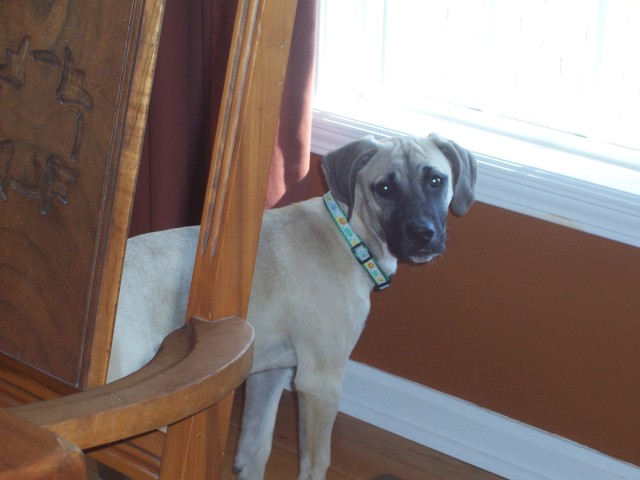 Purebred Dane or not?
QuestionMacy
QUESTION: We recently purchased a p
Purebred Dane or not?
QuestionMacy
QUESTION: We recently purchased a p
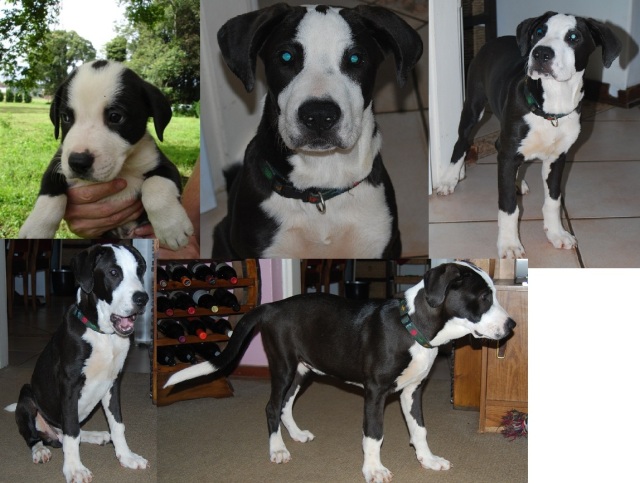 Is our rescue a Mantle Great Dane pup?
Question
all in one
Hi we got our little guy a cpl mont
Is our rescue a Mantle Great Dane pup?
Question
all in one
Hi we got our little guy a cpl mont
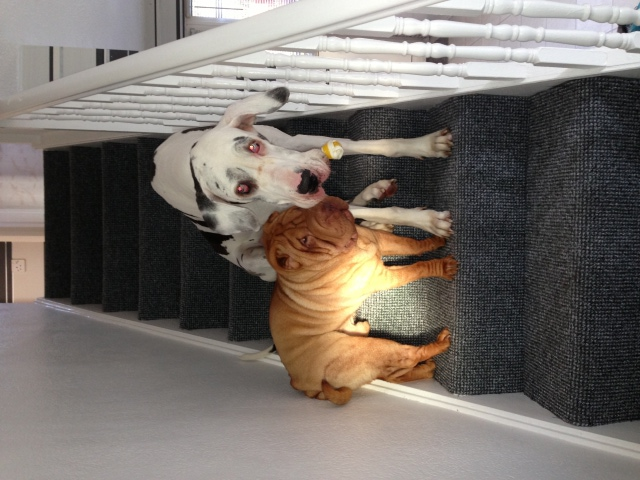 Hollie (great dane)
Question
Hollie
Hi my Great Dane is 8 years old,
Hollie (great dane)
Question
Hollie
Hi my Great Dane is 8 years old,
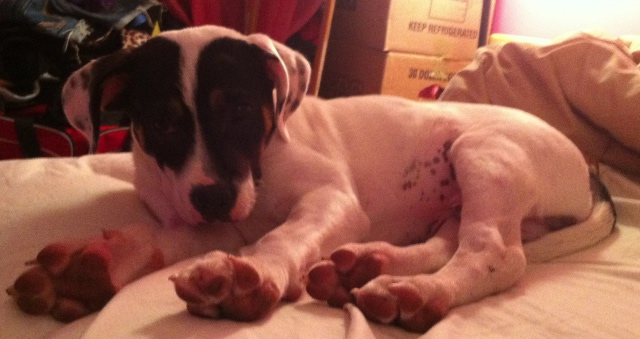 Does this lil guy have Great Dane in him?
Question
Duncan Duncan2
Friends mom found
Does this lil guy have Great Dane in him?
Question
Duncan Duncan2
Friends mom found
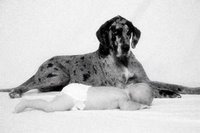 GREAT DANE WEIGHT GAIN
QuestionMY GREAT DANE IS THE RUNT OF THE LITTLE, SHE IS
GREAT DANE WEIGHT GAIN
QuestionMY GREAT DANE IS THE RUNT OF THE LITTLE, SHE IS